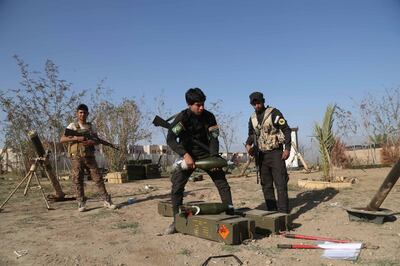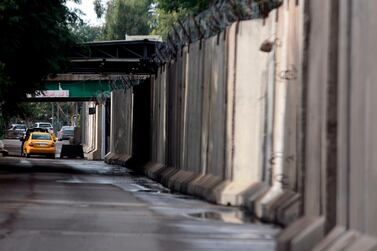An unidentified militant group has fired mortar rounds into an Iraqi air base north of Baghdad used by the United States military to train local forces.
The attack on the Balad air base didn’t cause any casualties but did cause some small bush fires that were extinguished quickly.
An Iraqi army general said the attack occurred shortly after midnight Friday. The senior officer, who spoke on condition of anonymity in line with regulations, said American trainers are stationed at Balad air base.
The attack comes amid rising tensions in the Middle East between the United States and Iran, which ratcheted up on Thursday after suspected attacks on two oil tankers near the strategic Strait of Hormuz. Iran has denied involvement.
Last month, a rocket exploded less than a mile away from the sprawling US Embassy in Baghdad's heavily fortified Green Zone, also causing no casualties.
Baghdad has been trying to maintain a fine line between allies Tehran and Washington, both key allies whose relationship – or lack of one – could make or break stability in Iraq. There have been concerns that Baghdad could once again get caught in the middle, just as it is on the path to recovery.
The country hosts more than 5,000 US troops and is home to powerful Iranian-backed militias, some of whom want those US forces to leave. Making matters more difficult for the government in Baghdad, the Iranian backed militias are part of the official security forces of the country, having been mobilised and deployed in the fight against ISIS after 2014. Many have political allies in parliament and fighters receive a salary from the state.

The current regional crisis is rooted in the US withdrawal last year from the 2015 nuclear deal between Tehran and world powers. Washington subsequently re-imposed sanctions on Iran, sending its economy into freefall and cutting deeply into its oil exports.
American forces withdrew from Iraq in 2011 but returned in 2014 at the invitation of Iraq to help battle ISIS after it seized vast areas in the north and west of the country, including Iraq’s second-largest city, Mosul.
A US-led coalition provided crucial air support as Iraqi forces regrouped and drove the militants out in a costly three-year campaign. Iranian-backed militias fought alongside US-backed Iraqi troops against ISIS, gaining outsized influence and power.







